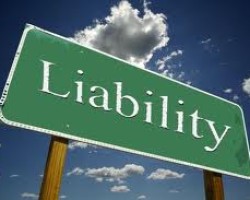
REMINDER: You may owe federal income taxes in 2013 if you have a short sale, foreclosure
Florida Today-
Because mortgages and foreclosures are such important issues in today’s shared ownership communities, we wanted to begin our column this week with a couple of legal notes and warnings.
First, a comment about short sales and taxation issues. If a homeowner sells their home for less than the amount owed on the mortgage (typically accomplished through a short sale), the amount of loan forgiveness (that is, the portion of the mortgage that will go unpaid) would ordinarily be subject to taxation on the homeowner as gain. Because of the potential impact of this rule on a large number of financially depressed homeowners, Congress passed a law in 2007 that allowed homeowners to avoid paying taxes on forgiven debt for their primary residence. However, that law expires at the end of 2012. Unless Congress extends the law, sellers should be aware that they may face significant taxes on their short sales.
© 2010-19 FORECLOSURE FRAUD | by DinSFLA. All rights reserved.



Lessee. You were given a loan you couldn’t pay back, you were lied to endlessly, they took all of your money, and you’ll never see it again – yet, you’re supposed to work with this trusted financial institution to “short sell” your house?
Now these banks that could not collect on these loans are forgiving the loans causing a tax bill that if the homeowner is still in the home that now the IRS put a tax lien against your property or if you don’t have a property they take your return every year until the amount is paid off.
So what you have is were they are having the federal government work as the foreclosing agent! However these loan in the case of a government insured loan are broken contracts because of the way the Notes are transfer without the debt being purchase!